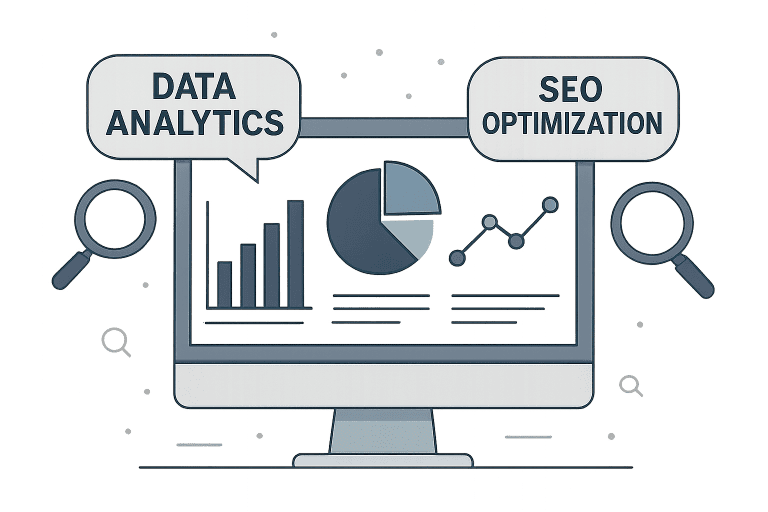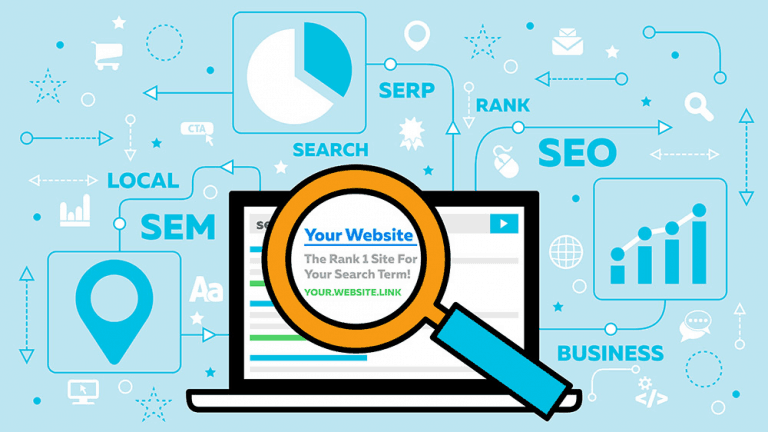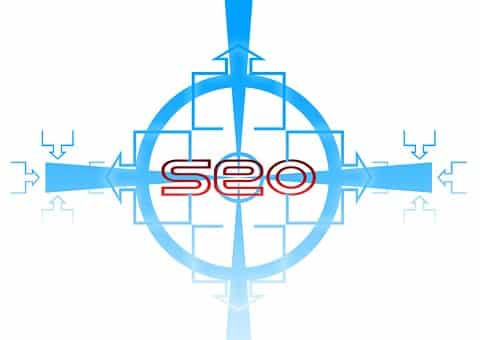Data-Driven Strategies for Better Enterprise SEO
Key Takeaways
- Data analytics is fundamental for understanding user behavior, detecting growth opportunities, and boosting enterprise SEO performance.
- Artificial intelligence and machine learning enable greater automation and improved content relevancy.
- Personalization and a seamless user experience are critical to long-term SEO and customer retention.
Table of Contents
- Introduction
- Understanding the Role of Data in SEO
- Implementing AI and Machine Learning
- Enhancing User Experience Through Personalization
- Leveraging Structured Data and Schema Markup
- Monitoring and Adapting to Algorithm Changes
- Integrating SEO with Overall Marketing Strategies
Large organizations need advanced strategies to remain visible and competitive online in the fast-paced digital age. Implementing purposeful, data-driven approaches is at the heart of effective enterprise SEO, unlocking deep insights about target audiences and informing powerful online optimization tactics. Expert enterprise SEO services can be the foundation for companies looking to translate complex analytics into sustainable top rankings and improved performance. Enterprise SEO has become far more sophisticated than traditional methods, from using big data to understand customer intent to leveraging AI for content optimization and scalability. Today, organizations that harness data analytics can craft more effective, resilient, and results-driven SEO strategies than ever, turning their websites into dynamic marketing engines armed for the future.
Understanding the Role of Data in SEO
Modern SEO combines creativity with science, and robust data analytics have become indispensable for enterprises. The importance of monitoring critical metrics—such as click-through, bounce, and conversion rates—cannot be overstated. These data points show how users interact with your site, revealing what content attracts, engages, and converts visitors. Enterprises can segment visitors by demographic, device, or location to tailor each cohort’s marketing and content strategies. Advanced keyword analysis, trend detection, and competitive benchmarking rely on data analytics to help organizations identify gaps and new growth opportunities. With these insights, brands can shape content that aligns with evolving user intent and search trends.

Implementing AI and Machine Learning
The introduction of AI and machine learning technologies has revolutionized enterprise SEO in recent years. These tools automate time-consuming processes such as content optimization, internal linking, and technical site audits. Using vast amounts of search and user data, AI models can recognize patterns in search engine algorithms and adapt site strategies accordingly. For example, AI-powered content tools analyze semantics, keyword relevance, and searcher intent to generate and optimize content that resonates with users and search engines. Machine learning algorithms can also analyze site health and predict rankings shifts, allowing SEO professionals to adjust their strategies proactively. As these technologies evolve, they are increasingly central to scalable, future-proof enterprise SEO strategies.
Enhancing User Experience Through Personalization
Personalization is critical in today’s digital landscape, where content must cut through the noise and address users’ specific needs. Enterprise brands are leveraging data to assess user behavior, purchase history, location, and preferences, and then delivering customized content experiences that drive greater engagement and loyalty. Dynamic content modules, product recommendations, and tailored landing pages—built on a foundation of user data—significantly increase time on site and the likelihood of repeat visits. Personalization boosts rankings due to improved engagement rates and increases conversions, underscoring why it’s essential for any modern enterprise SEO strategy. According to Forbes, personalized digital experiences can lead to a measurable lift in overall business outcomes.
Leveraging Structured Data and Schema Markup
Structured data and schema markup are the keys to communicating the context of your content directly to search engines. For large organizations with vast product lines or complex services, leveraging schema can make content far more accessible and understandable to search index algorithms. This directly affects how—and how often—your content receives enhanced visibility through rich results or featured snippets. By providing explicit details about articles, products, reviews, events, or organizational attributes, schema markup increases the potential for higher click-through rates while also supporting voice search and mobile-first indexing initiatives. Implementing these technical SEO enhancements can differentiate a brand in crowded digital markets.
Monitoring and Adapting to Algorithm Changes
Search engines continually update their algorithms, often impacting how content ranks overnight. For enterprises managing large content portfolios, remaining vigilant and responsive to these changes is critical. Teams must monitor SEO news sources, analyze sudden traffic changes, and rapidly test and deploy content or technical adjustments in response to new algorithmic requirements. Proactive adjustment to algorithmic shifts ensures sustained performance. Enterprises that regularly audit their websites and stay ahead of ranking factors are better positioned to avoid penalties and maintain visibility in a constantly changing search landscape.
Integrating SEO with Overall Marketing Strategies
SEO cannot succeed in isolation; its success is compounded when integrated with an organization’s broader marketing initiatives. Aligning SEO efforts with content marketing, paid advertising, and social media campaigns maximizes the amplification of each channel and ensures consistent messaging. Regular collaboration among content teams, data analysts, and technical SEOs results in strong synergy, allowing the organization to maximize digital investments and reach. Integrating SEO strategy with all aspects of digital marketing ensures that every piece of content, campaign, and engagement is optimized for rankings, conversions, and brand growth. Data-driven strategies are no longer optional, but essential for enterprise organizations determined to secure and sustain top search visibility. Large organizations can command strong organic search performance and meaningful long-term growth by embracing advanced data analytics, leveraging AI, focusing on user personalization, implementing technical enhancements, remaining agile to search updates, and integrating with comprehensive marketing efforts.




